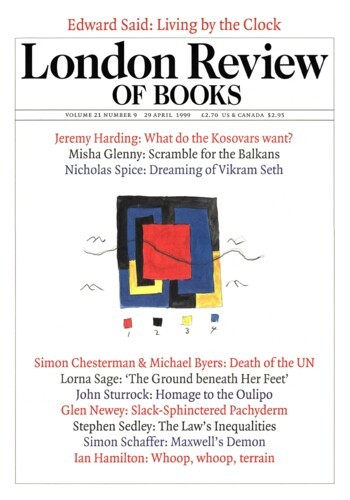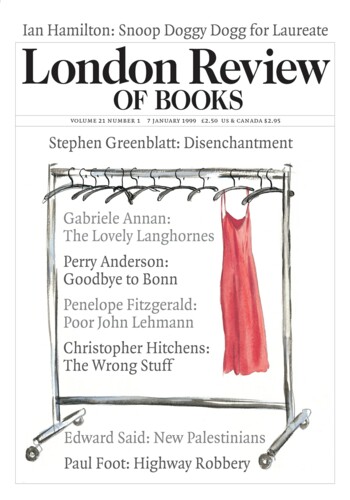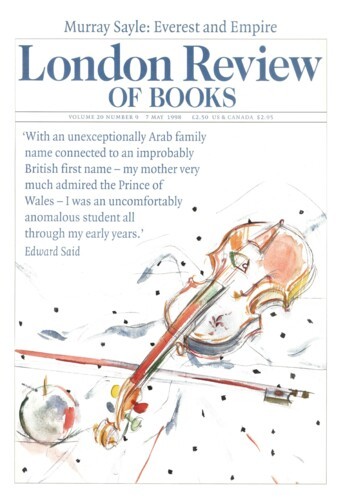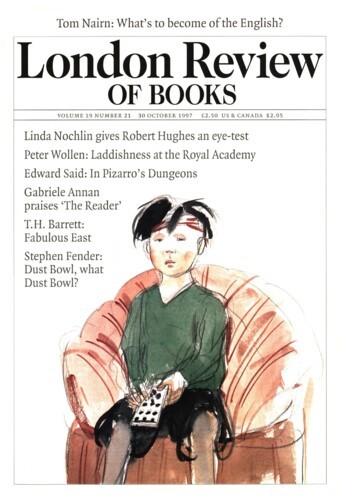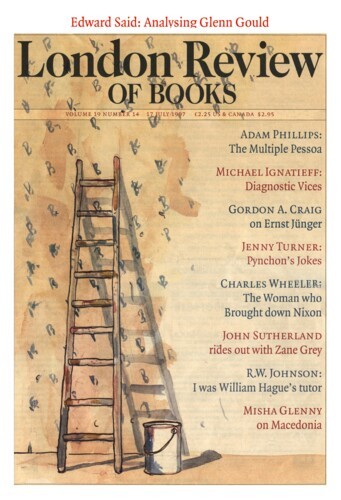On Writing a Memoir: Living by the Clock
Edward Said, 29 April 1999
All families invent their parents and children, give each of them a story, character, fate, and even a language. There was always something wrong with how I was invented and meant to fit in with the world of my parents and four sisters. Whether this was because I constantly misread my part or because of some deep flaw in my being I could not tell for most of my early life. Sometimes I was intransigent, and proud of it. At other times I seemed to myself to be nearly devoid of character, timid, uncertain, without will. Yet the overriding sensation I had was of never being quite right. As I have said before in these pages, it took me about fifty years to become accustomed to, or more exactly to feel less uncomfortable with, ‘Edward’, a foolishly English name yoked to the unmistakably Arabic family name ‘Said’. True, ‘Edward’ was for the Prince of Wales who cut so fine a figure in 1935, the year of my birth, and ‘Said’ was the name of various uncles and cousins. But the rationale of my name broke down when I discovered no grandparents called ‘Said’, and when I tried to connect my fancy English name with its Arabic partner. For years, and depending on the exact circumstances, I would rush past ‘Edward’ and emphasise ‘Said’; or do the reverse, or connect the two to each other so quickly that neither would be clear. The one thing I could not tolerate, but very often would have to endure, was the disbelieving, and hence undermining, reaction: Edward? Said?‘
